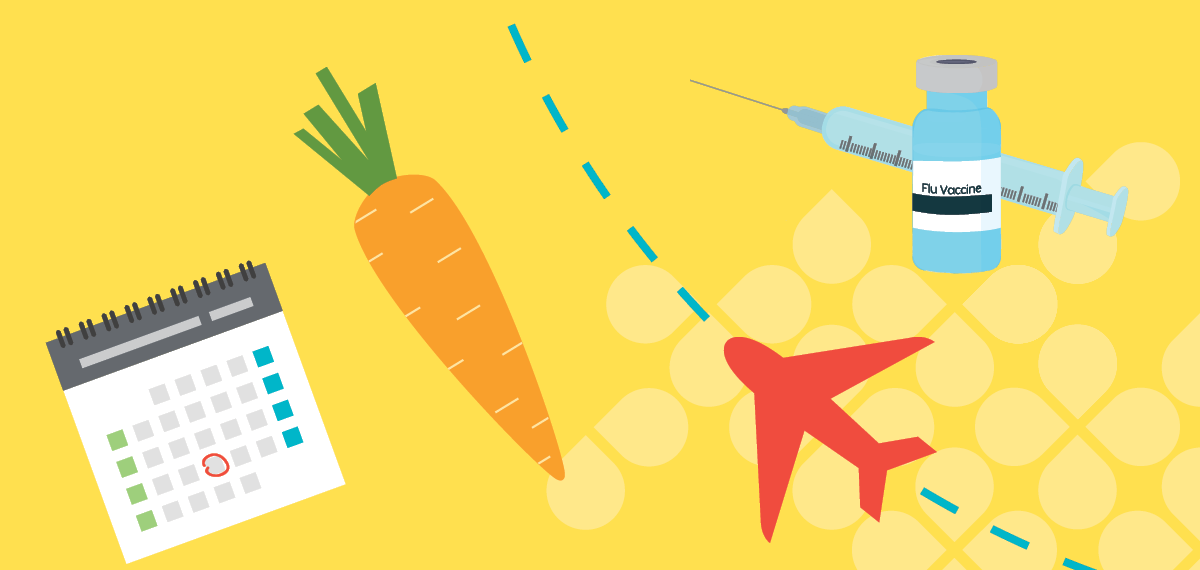
Not sure whether you’re eligible to give blood? You’re not alone.
Sure, there are some basic qualifications to donate—typically you’ll need to be at least 18, at least 110 pounds and in good health. But many other factors people think might disqualify them aren’t true.
Here are the thirteen blood donation myths we hear most often, debunked.

1. I can’t give blood because I traveled outside the United States.
False. Many popular travel destinations are perfectly safe for a post-vacation donation. If you’re concerned about your location (or if it has a known malaria risk), you can always make an appointment before you go. Our Clinical Specialists are also happy to help you determine your eligibility. Contact them by emailing [email protected] or calling 206-292-2543.
2. I can’t give blood because I just got a tattoo or piercing.
False. If your tattoo or piercing is from a licensed shop in Washington, Oregon, California, or Idaho, you’re good to go. Travel a little farther for your new tat or bling? You’ll have a one year wait to donate.
3. I’m too old to give blood.
False. There is no upper age limit for blood donation (and in fact, many of our older donors are our most dedicated). As long as you are 16 or older and meet our basic eligibility requirements, you should be able to give blood.
4. I don’t need to give blood because there are already enough donors.
False. Did you know someone needs a blood transfusion every two seconds? According to the U.S. Food and Drug Administration, while about 45 percent of the U.S. population is eligible to donate blood, “only about 4 percent actually do so, and 75 percent of those are repeat donors.”

5. I can’t give blood because I just got a flu shot.
False. There is no waiting period after your annual flu shot. So, go ahead and inoculate against the next batch of nasty viruses.
6. Giving blood is too time-consuming.
False. A whole blood donation takes less than an hour — including the quick screening and post-donation relaxation. That’s about as long as two of your favorite TV re-runs and the impact of your donation lasts a lifetime.
7. I can’t give blood because I’m on medication.
False. Many medications do not impact the safety of your blood donation. Check out our list of approved medications and for more information, contact our Clinical Specialists by emailing [email protected] or calling 206-292-2543.
8. I can’t give blood because I’m diabetic.
False. Diabetics, on or off medication, are eligible to donate blood as long as their diabetes is under control.

9. I can’t give blood because I’m a vegetarian.
False. As long as you’re getting enough iron, vegetarianism doesn’t disqualify you from donating blood. There are plenty of yummy, iron-rich meat substitutes you can include in your diet—hello, leafy greens!
10. Giving blood will permanently deplete my blood supply.
False. According to Mayo Clinic, your body replaces lost fluids within 24 hours and replenishes lost red blood cells within several weeks. By then, you’ll be almost ready to donate again! To help your body quickly recover, we encourage you to refrain from physical exertion for the first 12 hours after your donation.
11. Giving blood is really painful.
False. While you can expect a small poke from the needle insertion, the rest of your donation should be a pain-free breeze.
12. I can’t give blood because I had cancer.
False. Most people are safe to donate blood after they’ve completed their cancer treatment and have been disease-free for one year. To ensure your eligbility, contact our Clinical Specialists by emailing [email protected] or calling 206-292-2543.

13. I can only donate blood once a year.
False. Whole blood donors may give once every 56 days – allowing plenty of time to replenish their red cells. Because the body replenishes platelets especially quickly, apheresis platelet donors may donate once every 7 days, and up to 24 times per year. Plasma may also be donated once every 28 days, or up to 13 times a year, and double red cells may be donated every 112 days, or up to 3 times a year.
14. I can’t donate if I use cannabis.
False. As long as you are not under the influence of any substance like alcohol or cannabis when you arrive to donate, you can give blood. We recommend waiting 24 hours between consumption and donation of blood to allow the substance to be cleared from the bloodstream. And in case you’re wondering, following the guidelines of 24-hour wait, there’s no harm to any transfusion recipient.
Now it’s your turn: What other blood donation questions do you have? Let us know in the comments and our experts will weigh in. For more blood donation fun, follow us on Facebook and Instagram to stay up-to-date on donor giveaways, patient stories and more.
Tell Us What You Think!